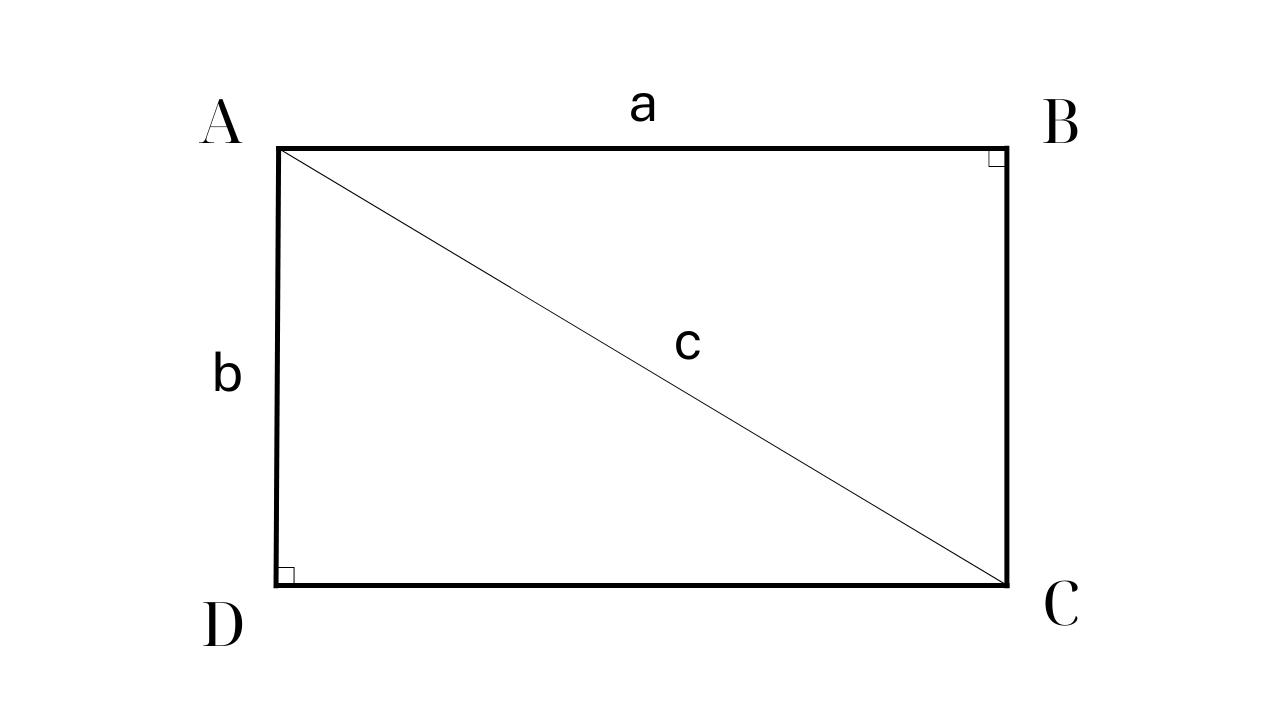What is a rectangle?
According to Lesson 13, Math 8 (Volume 1) of the textbook series "Connecting knowledge with life" by Vietnam Education Publishing House, the definition of a Rectangle is a quadrilateral with 4 right angles.
The properties of a rectangle are that it has 2 parallel opposite sides, 2 equal opposite sides, 2 equal opposite angles, 2 equal diagonals and intersects at the midpoint of each line.

Formula for calculating the area of a rectangle
In lesson 52, Math book 3 (Volume 2) of the textbook series "Connecting knowledge with life" by Vietnam Education Publishing House, the formula for calculating the area of a rectangle is length multiplied by width (same unit of measurement).
| S = axb |
In there:
S: Area of rectangle
a: Length of the rectangle
b: Width of the rectangle
For example: A rectangular wooden board has a width of 5cm and a length of 15cm. Calculate the area of that wooden board.
Answer: The area of the wooden board is: S = 5 x 15 = 75 (cm 2 )
Formula for calculating the area of a rectangle when knowing 1 side and diagonal
To calculate the area of a rectangle when knowing the diagonal and one side, it is necessary to combine the Pythagorean theorem with the basic area formula.
Step 1: Apply the Pythagorean theorem in a right triangle to calculate the length of the remaining side.
Step 2: Apply the formula to calculate the area of a rectangle: S = axb
For example: A rectangle ABCD has AD = 60cm, diagonal AC is 100cm. Calculate the area of ABCD.
Answer:
Step 1: Find the remaining side of rectangle ABCD using the Pythagorean theorem in a right triangle.
Accordingly: AC 2 =AB 2 +AD 2 => AB 2 = AC 2 - AD 2 = 10000 - 3600 = 6400 => AB = 80 (cm)
Step 2: Area ABCD = AB x AD = 60 x 80 = 4800 (cm 2 )
Formula for calculating the area of a rectangle when knowing the perimeter
To calculate the area of a rectangle when knowing the perimeter, you must combine the perimeter formula and the basic area formula.
Step 1: From the formula for calculating the perimeter of a rectangle is P = (a+b) x 2 with P is the perimeter, a is the length, b is the width of the rectangle, we have a = (P/2) - b or b = (P/2) - a
Step 2: After finding a or b, apply the formula to calculate the area of a rectangle: S = axb
Signs to recognize a rectangle?
According to Lesson 13, Math 8 (Volume 1) Textbook series "Connecting knowledge with life" by Vietnam Education Publishing House, the signs to recognize a rectangle are:
- A quadrilateral has 3 right angles (based on the definition)
- Parallelogram has 1 right angle
- A parallelogram has two equal diagonals.
- An isosceles trapezoid has one right angle.
Is a rectangle a parallelogram?
According to Lesson 13, Math 8 (Volume 1) Textbook series "Connecting knowledge with life" by Vietnam Education Publishing House, a rectangle has all the properties of a parallelogram. Therefore, a rectangle is a special parallelogram.
Is a rectangle an isosceles trapezoid?
Lesson 13, Math 8 (Volume 1) Textbook series "Connecting knowledge with life" by Vietnam Education Publishing House, rectangle has all the properties of an isosceles trapezoid. Therefore, a rectangle is a special form of isosceles trapezoid.
(Synthetic)
Source: https://vietnamnet.vn/cong-thuc-tinh-dien-tich-hinh-chu-nhat-2445253.html



























![[Photo] Prime Minister Pham Minh Chinh receives Secretary of Shandong Provincial Party Committee (China) Lin Yu](https://vphoto.vietnam.vn/thumb/1200x675/vietnam/resource/IMAGE/2025/9/26/821396f0570549d39f33cb93b2e1eaee)


































































Comment (0)